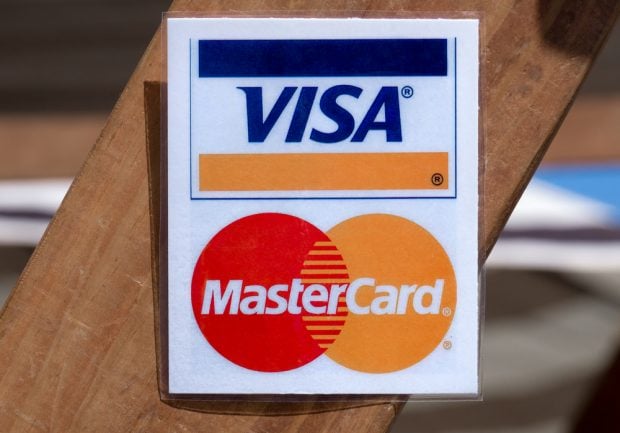 It has been more than four yearssince the Credit CARD Act was passed by Congress and more thanthree years since the compliance dates set by the Federal ReserveBoard (many compliance professionals may still be haunted by thedate Feb. 22, 2010). While it would seem like credit cardcompliance issues are in the rearview mirror, now is the perfecttime for credit unions to review their procedures to ensure theyremain compliant.
It has been more than four yearssince the Credit CARD Act was passed by Congress and more thanthree years since the compliance dates set by the Federal ReserveBoard (many compliance professionals may still be haunted by thedate Feb. 22, 2010). While it would seem like credit cardcompliance issues are in the rearview mirror, now is the perfecttime for credit unions to review their procedures to ensure theyremain compliant.
Now that the Consumer Financial Protection Bureau has met itsDodd-Frank mandates, its attorneys are freed-up to review otherareas of concern—including credit cards. The CFPB has repeatedlystated it will use consumer complaints as a prime indicator ofwhere to place its resources. Not surprisingly, credit cards arethe number two category of complaint at 21% (edged out only bymortgages at 48%). And, from a global perspective, the CFPB wantsto protect as many consumers as possible. By focusing on mortgagesand credit cards (not to mention student loans), the CFPB iscertainly casting a wide net.
|Two reports from the CFPB provide valuable insight into thefuture focus on credit cards. First, the CFPB's Fall 2012Supervisory Highlights identified areas of concern the CFPBfound during examinations of the largest depository institutions.Most credit unions are aware of the prominent fines to large banksfor unfair or deceptive acts or practices related to credit cardadd-on products. And, that was not a one-time event, as the CFPBhas continued to analyze issues related to credit card add-onproducts—including a recent settlement with Chase Bank and ongoingtalks with Bank of America. While credit unions may not have hadthe same types of credit card add-on products, the compliance (andreputation) risks are definitely ratcheted up in the credit cardarea.
|Beyond the headline-grabbing fines, the report highlightedissues that could trip up even the most detail-oriented complianceprofessional. For example, the CFPB cited financial institutionswith failing to obtain a joint owner's consent to a credit limitincrease on a credit card account when the request was initiated byan individual under the age of 21. According to Regulation Z,credit unions must consider a member's ability to pay a credit cardbefore they open an account or increase a member's credit limit.When a member is under the age of 21, the member must have theirown independent ability to pay or have a joint owner who is abovethe age of 21. In examinations, the CFPB found thatindividuals—under the age of 21—were obtaining credit limitincreases without the written agreement of the joint owner who isabove the age of 21. As you can probably tell, this is veryspecific issue (and very hard for credit unions' systems to track),but it is on the CFPB's radar.
|Similarly, the CFPB's report highlighted the failure to performa rate reevaluation on credit card accounts that were acquiredduring a merger. In these situations, the surviving credit unionsteps in the shoes of the institution that had previously raisedthe member's rate and has the obligation to conduct ratereevaluations every six months. Given the pace of mergers in thecredit union industry, this last one should definitely be on creditunions' radar.
|More recently, the CFPB issued its CARD Act Reportwhich reviews how the law impacted the consumer credit card market,but also highlighted additional areas of concern. For creditunions, the translation for “additional areas of concern” issimple: future regulation. Of particular note is the CFPB'sdiscussion of transparency issues. Specifically, the CFPB isinvestigating online disclosures and whether information on themember's periodic statement should be duplicated on the creditunion's online banking portal. For example, the CFPB is consideringwhether minimum payment and late payment warnings should bedisclosed when a member goes online to view their credit cardtransactions. Compliance professionals that worked through updatingthe actual periodic statements know the headaches that would ensueif the CFPB mandated these specific content and formattingrequirements.
|While the CFPB's attention to credit cards has not lead toadditional regulation yet, it does increase the need for creditunions to review their past implementation of the Credit CARD Actrequirements to ensure they are meeting the existing requirementsand did not miss anything.
|Steve Van Beek is attorney and counselor at Howard &Howard Attorneys, PLLC in Royal Oak, MI. Contact 248-723-0521 orsvb@h2law.
Complete your profile to continue reading and get FREE access to CUTimes.com, part of your ALM digital membership.
Your access to unlimited CUTimes.com content isn’t changing.
Once you are an ALM digital member, you’ll receive:
- Critical CUTimes.com information including comprehensive product and service provider listings via the Marketplace Directory, CU Careers, resources from industry leaders, webcasts, and breaking news, analysis and more with our informative Newsletters.
- Exclusive discounts on ALM and CU Times events.
- Access to other award-winning ALM websites including Law.com and GlobeSt.com.
Already have an account? Sign In
© 2024 ALM Global, LLC, All Rights Reserved. Request academic re-use from www.copyright.com. All other uses, submit a request to [email protected]. For more information visit Asset & Logo Licensing.









